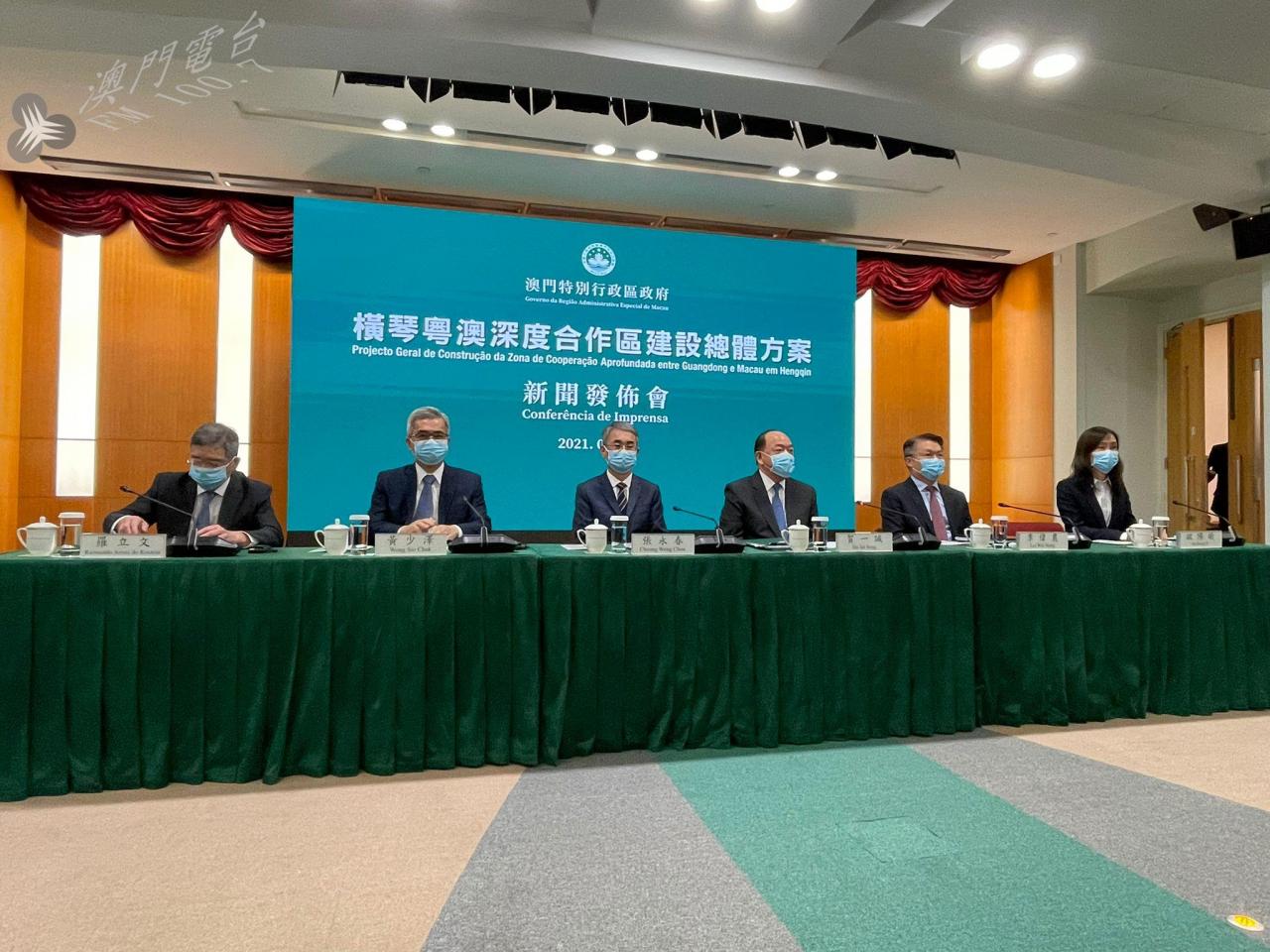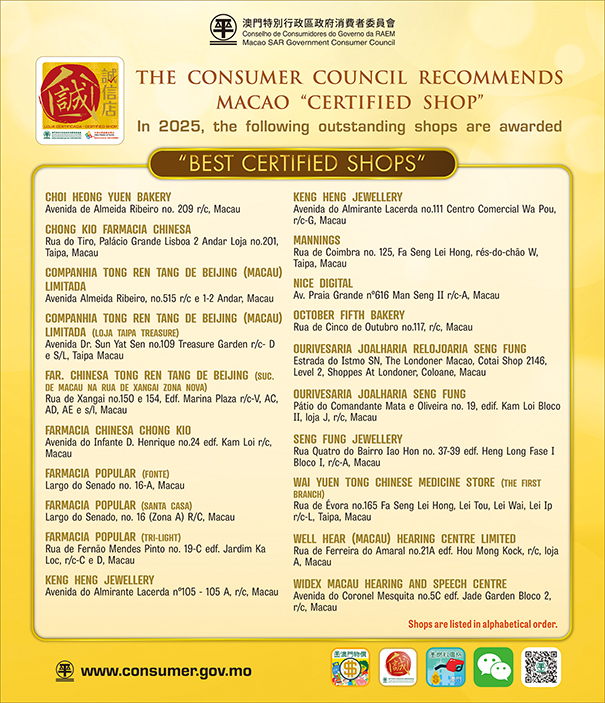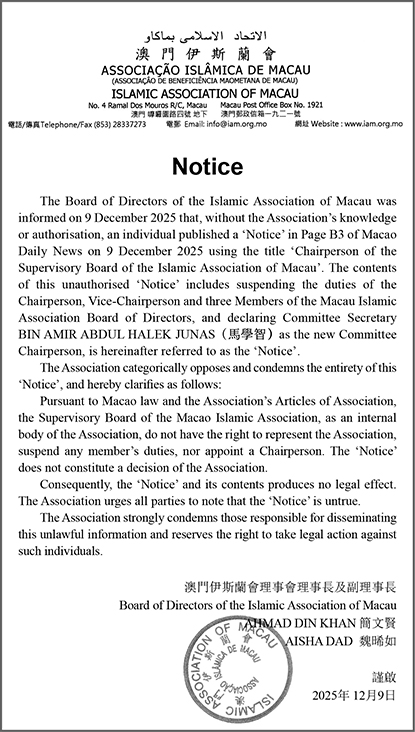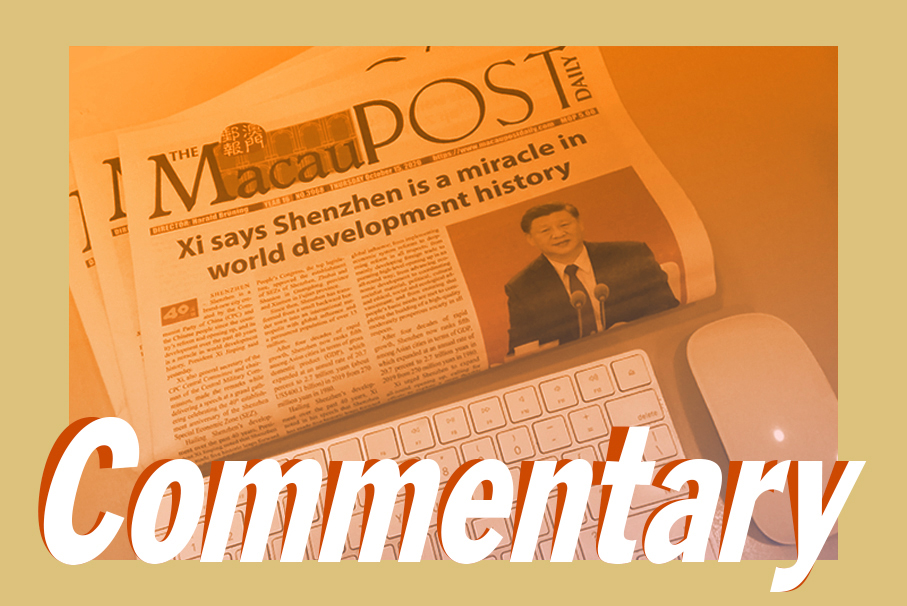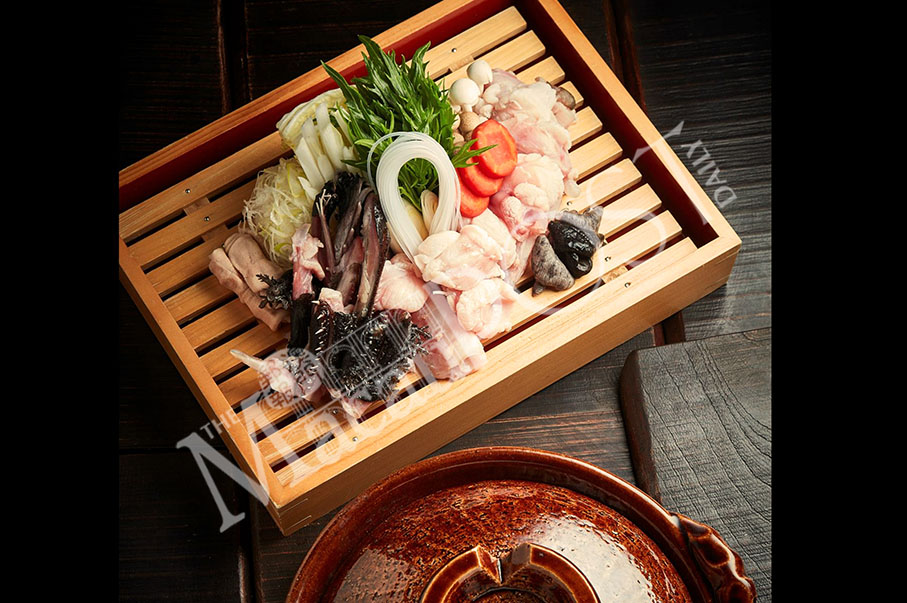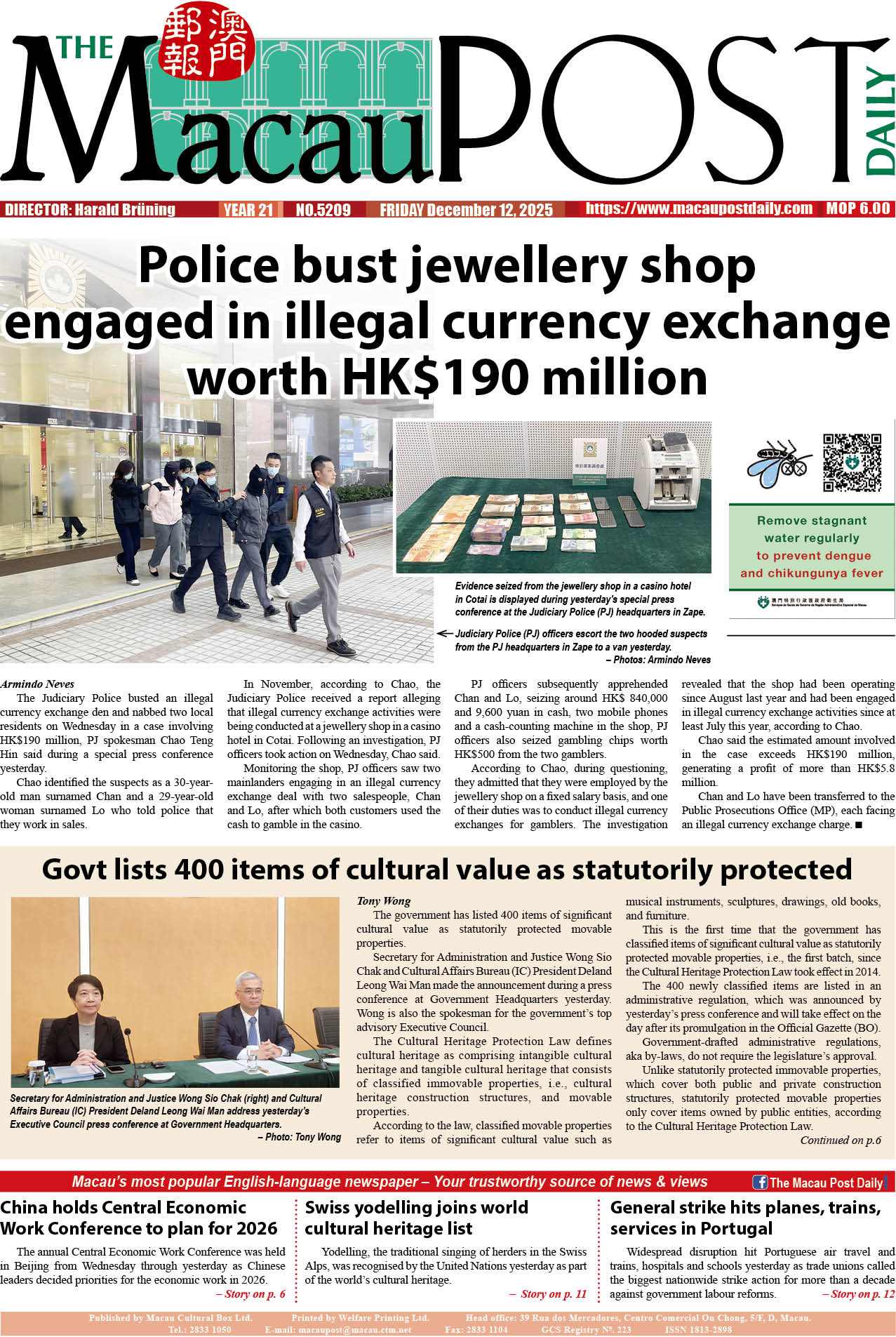Macau Chief Executive Ho Iat Seng stressed today an innovative approach to the development of the Guangdong-Macau In-depth Cooperation Zone in Hengqin.
Addressing a special press conference about the large-scale project, which was announced by the central authorities last Sunday, Ho pointed out that the 106-square-kilometre project’s master plan comprises two governments (Guangdong and Macau) that have different legal systems but nevertheless are committed to co-administering the cooperation zone for their mutual benefit.
Ho, who was flanked by his five policy secretaries, stressed that the in-depth cooperation zone in Hengqin is inherently different from the Nansha and Qianhai development zones in Guangdong.
The chief executive stressed that the in-depth cooperation zone is unique in the world.
The chief executive emphasised that, in principle, Macau’s civil and commercial laws will basically be implemented in the in-depth cooperation zone, but that public security matters will continue to be handled by mainland laws. However, he stressed that there will be no "copy-paste" transfer of Macau's legal system to Hengqin, but a "harmonisation" between the two different legal systems by adopting each side's better aspects in order to achieve the best possible solution. Ho said that this would result in a new legal system for the in-depth cooperation zone.
Ho also said that the zone’s customs management would be relatively easy because Hengqin is an island. He said that with the exception of some non-domestic products such as automobiles, which will continue to be subject to customs duties in the zone, the prices of imported daily necessities there would be basically the same as in Macau.
Hengqin lies just a few hundred metres west of Macau's Cotai entertainment precinct.
Ho also said that apart from extreme internet content opposed to the Communist Party of China(CPC), other online content that can be received in Macau could also be used in Hengqin.
“Therefore, the business and life in the zone will basically be similar to Macau,” Ho said, adding that Hengqin will offer Macau residents “a lot of convenient and livable space.”
The chief executive also said that Macau’s six gaming operators were welcome to invest in non-gaming businesses in Hengqin. However, he urged them to invest in projects other than hotels, considering that many hotels and other tourism facilities are already being developed in the zone. He recommended investments in cultural and sports facilities instead.
Ho reaffirmed his government’s goal of developing a moderately diversified economy in Macau. He said the idea was not to transfer certain investment projects from Macau to Hengqin. As far as the approval of investment projects in the zone is concerned, more emphasis would be placed on their innovative aspects, Ho said.
The chief executive also said that his government planned to draft legislation concerning the financial sector in the in-depth cooperation zone, pointing out that Macau doesn't have a bond market, stock exchange or other wealth management tools. Ho said the government had started the drafting process last year and was planning to submit the a raft of bills on the matter to the local legislature in due course.
The central government's master plan (officially called "general plan") calls for the setting-up of a "modern financial" system in the zone.
Ho, a former Macau business community leader and speaker of the local legislature, said the point was not for business people to close their restaurants or supermarkets in Macau in order to move them to Hengqin but, instead, to open new restaurants or supermarkets in the zone to sell, for instance, Macau speciality products there.
The chief executive also said that as far as Macau’s GDP is concerned, the local government was proposing a new calculation method for Macau's gross domestic product considering the investments and earnings of locally-registered companies in the in-depth cooperation zone, but always in accordance with international statistical standards. Ho said that a working group of experts would hammer out details on the GDP calculation. He said the aim was to propose to the central government that the investments and earnings of Macau-registered companies from their involvement in the cooperation zone in Hengqin be included in Macau's GDP calculation, adding that the the local government has been in talks with a raft of ministries in Beijing on the matter.
Concerning some people’s concerns about the in-depth cooperation project's possible implications resulting from the fact that the political systems of Macau and the mainland are not the same, Ho said it was inappropriate to involve too much politics in Macau’s economic development. Ho was adamant that “if you have no confidence in the cooperation zone, you can choose to stay in Macau,” adding that the government would not force anyone to invest in Hengqin. He also stressed that any foreigner could investment in the zone, including those who don't hold a Macau ID card.
Ho said one of the main points of the in-depth cooperation zone is to provide Macau’s economy with more space, adding that the zone would offer local people alternative livelihood opportunities.
Ho also announced that starting on Monday his government's policy secretaries would meet the press to explain their respective portfolios' details concerning Macau's gradual involvement in the development of the zone.
